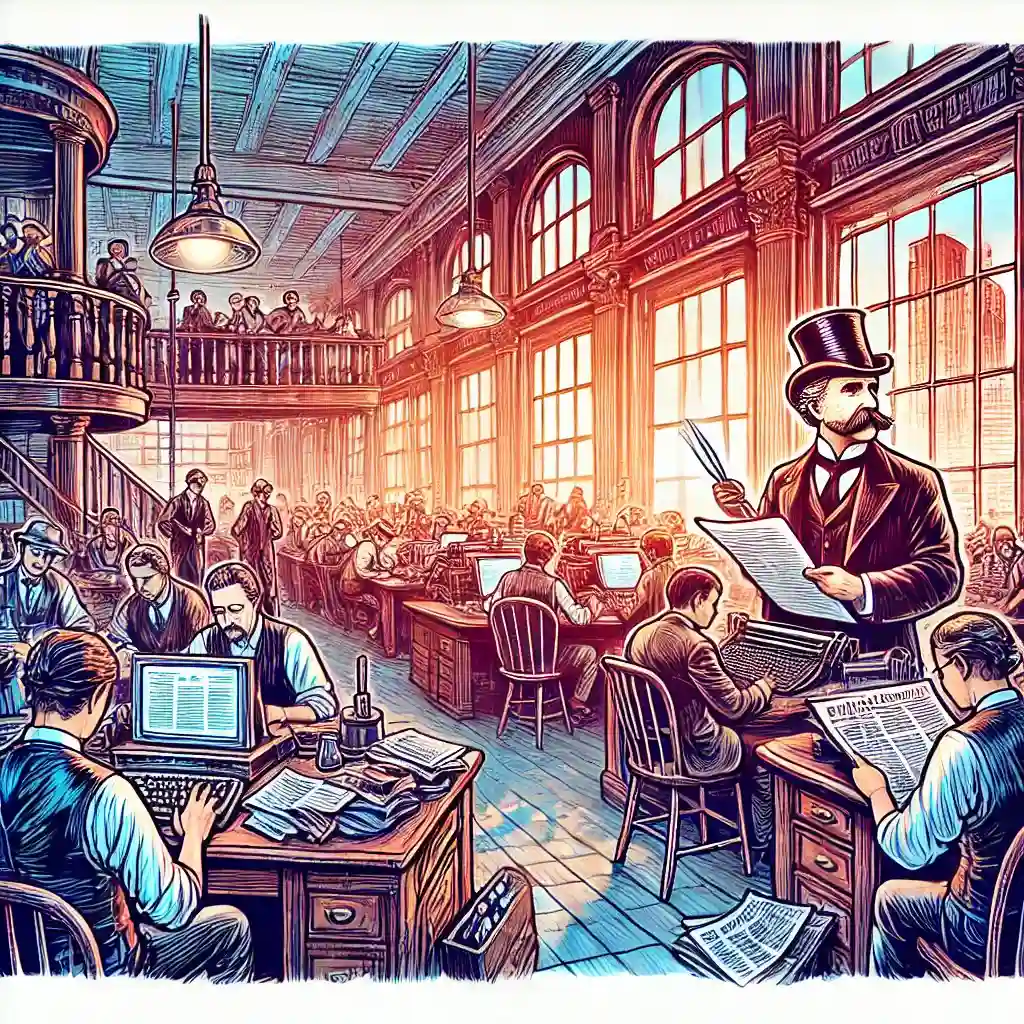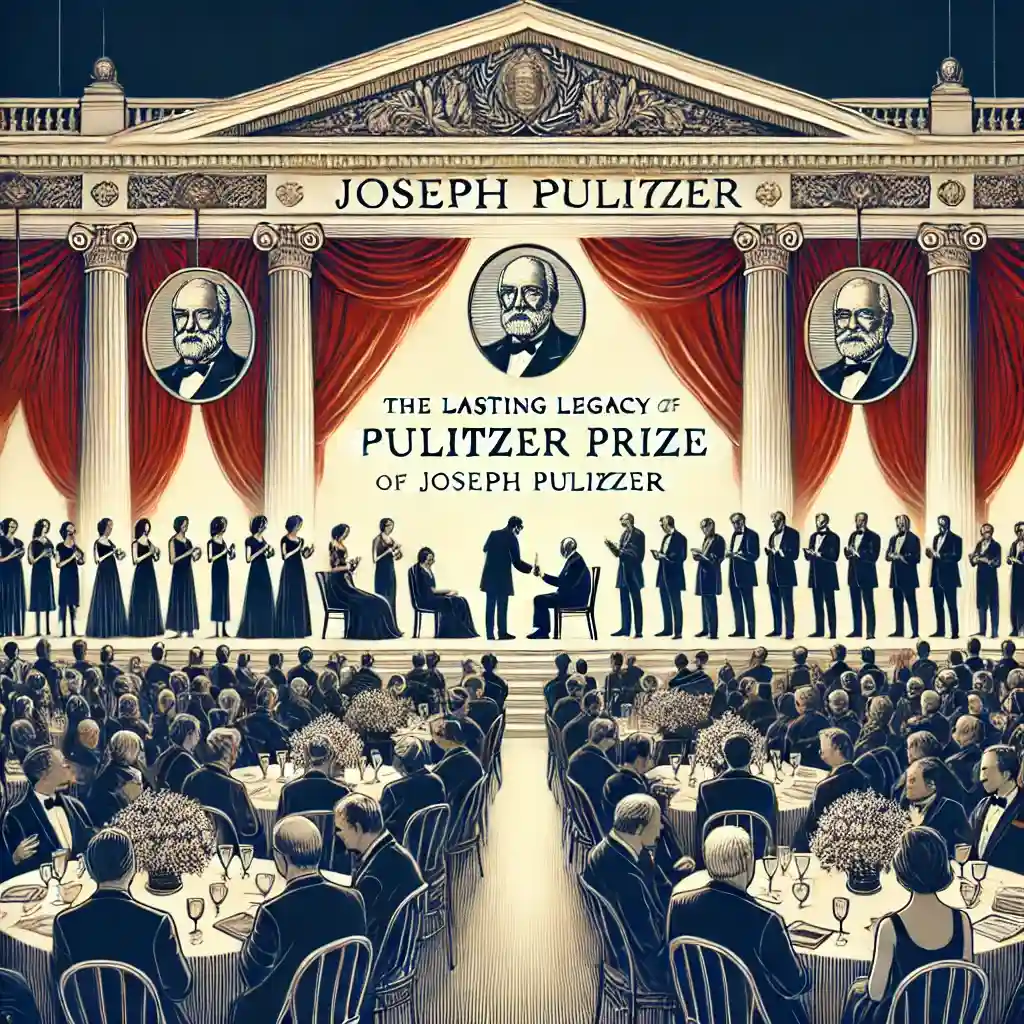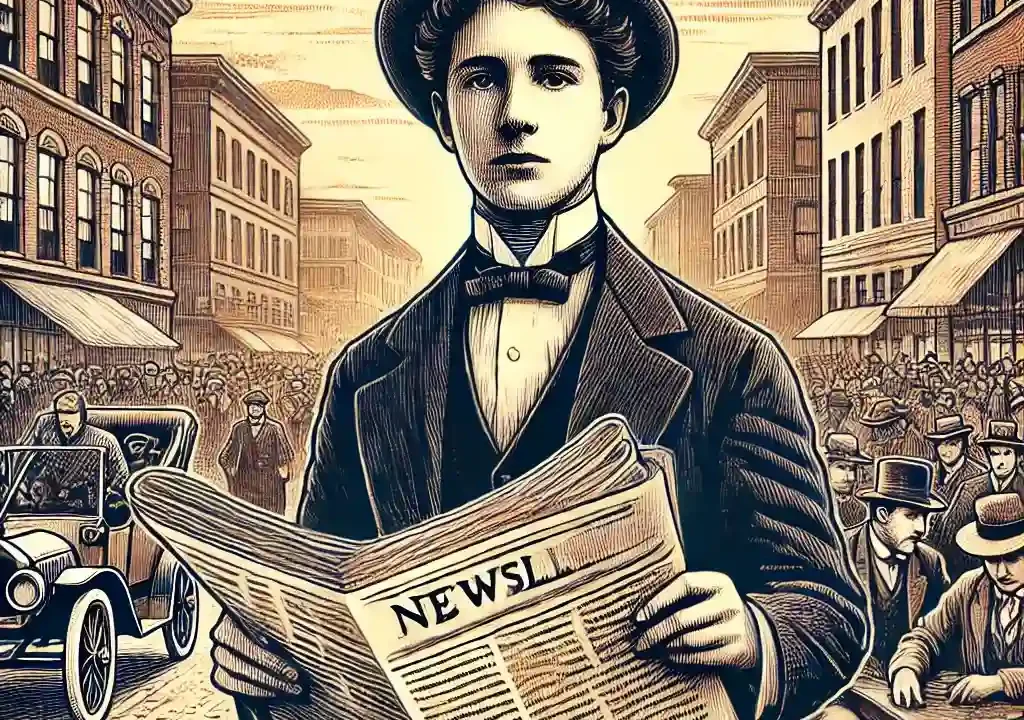Joseph Pulitzer: The Man Behind Modern Journalism
The theme of this English language resource is "learning casual English through real events."
The theme of this English resource is "Learn casual English through real events."
1. the Life and Rise of Joseph Pulitzer
Joseph Pulitzer was born in 1847 in Hungary and eventually made his way to the United States, where he would change the face of journalism forever. He started his career in America as a soldier in the Civil War, but after the war ended, he turned his attention to journalism. made a name for himself He eventually bought his own newspaper, The New York World, and used it to fight corruption and give a voice to the common people. He eventually bought his own newspaper, The New York World, and used it to fight corruption and give a voice to the common people.
Q1: What are your thoughts on this part of the article?
Sample Answer: "It's impressive how Joseph Pulitzer started from humble beginnings and managed to create such a big impact on journalism. His commitment to giving a voice to the people is inspiring."
Q2: Create a question excerpted from this article.
Sample Answer: "How did Joseph Pulitzer begin his journey in journalism after arriving in the United States?"
Q3: How would you sum up this section in a few words?
Sample Answer: "Pulitzer's rise in journalism."
Now, let's talk using idioms.
Let the students choose one favorite idiom and make an example sentence.
Idiom used: "Made a name for himself"
Explanation: This idiom means to become well-known or famous for something, usually through one's own actions or achievements.
Example Sentence: "Joseph Pulitzer made a name for himself in journalism by tirelessly fighting for the truth."
1. the life of Joseph Pulitzer and his path to success
Joseph Pulitzer was born in Hungary in 1847 and eventually moved to the United States, where he would forever change the face of journalism. His career in the United States began as a Civil War soldier, but after the war ended, he turned his attention to journalism. Pulitzer quickly made a name for himself as a determined, hardworking journalist committed to the pursuit of truth. He eventually purchased his own newspaper, The New York World, and used it to fight corruption and give voice to the common man.
Q1: What do you think about this part?
sample answer: "It is amazing how Joseph Pulitzer started from humble beginnings and made a huge impact on journalism. His commitment to giving people a voice is inspiring."
Q2: Please create a question taken from this article.
sample answer: "How did Joseph Pulitzer begin his career in journalism after arriving in the United States?"
Q3: Summarize this section in a few words?
sample answer: "The Success of Pulitzer's Journalism."
Idioms used: "Made a name for himself"
Description.: This idiom usually means to become famous or to gain fame through one's actions or accomplishments.
model sentence: "Joseph Pulitzer made his name in journalism by pursuing the truth."
Japanese translation: "Joseph Pulitzer made a name for himself in journalism by continually striving for the truth."
Pulitzer's Influence on Modern Journalism

He was a pioneer of investigative journalism and believed in making news both informative and entertaining. His style of sensational storytelling, often called "yellow journalism," drew in large audiences. While this approach had its critics, it undeniably changed how news was consumed and delivered, bringing stories that mattered to the front pages. Pulitzer also introduced new journalistic practices, like in-depth investigations and human-interest stories, making news accessible and engaging for everyday people.
Q1: What are your thoughts on this part of the article?
Sample AnswerI think it's fascinating how Pulitzer's way of reporting made news more interesting to the public. on investigative journalism really changed how we consume news today."
Q2: Create a question excerpted from this article.
Sample Answer: "What kind of changes did Pulitzer bring to journalism, and how did they affect news consumption?"
Q3: How would you sum up this section in a few words?
Sample Answer: "Pulitzer's news transformation."
Now, let's talk using idioms.
Let the students choose one favorite idiom and make an example sentence.
Idiom used: "Drew in large audiences"
Explanation: This idiom means to attract a lot of people, usually through an action or event that is interesting or entertaining.
Example Sentence: "Pulitzer's sensational stories drew in large audiences, making his newspaper one of the most popular in the country ."
2. the influence of Pulitzer on modern journalism
Pulitzer didn't just report the news; he transformed it. He was a pioneer in investigative reporting and believed in providing news as both information and entertainment. His sensationalist style of storytelling, dubbed "yellow journalism," drew large audiences. While there were critics of this approach, there is no doubt that it changed the way news was consumed and delivered and contributed to getting important stories on the front page. Pulitzer also introduced new journalistic techniques, such as in-depth research and human interest stories, that made news accessible and interesting to everyday people.
Q1: What do you think about this part?
sample answer: "I find it interesting that Pulitzer's reporting methods made news more interesting. His focus on investigative reporting has really changed the way we consume news today."
Q2: Please create a question taken from this article.
sample answer: "What changes did Pulitzer bring to journalism and how did it affect the consumption of news?"
Q3: Summarize this section in a few words?
sample answer: "Pulitzer News Transformation.
Idioms used: "Drew in large audiences"
Description.: This idiom means to attract a large number of people, usually by some interesting or entertaining action or event.
model sentence: "Pulitzer's sensational articles drew a large audience and made his newspaper one of the most popular in the country."
Japanese translation: "Pulitzer's sensational articles drew a large audience and made his newspaper one of the most popular in the country."
3. the Legacy of Joseph Pulitzer

Joseph Pulitzer's impact didn't end with his death in 1911. left behind a legacy Most notably, he established the Pulitzer Prize, which has become the highest honor in journalism and the arts. The Pulitzer Prize rewards excellence in journalism, literature, and musical composition, and it continues to set the standard for quality and integrity in reporting. Joseph Pulitzer's dedication to truth, innovation, and storytelling has left an enduring legacy that serves as a benchmark for all journalists.
Q1: What are your thoughts on this part of the article?
Sample AnswerIt's incredible how Pulitzer's influence continues today through the Pulitzer Prize. testament to his commitment to quality journalism and storytelling."
Q2: Create a question excerpted from this article.
Sample Answer: "What is the legacy of Joseph Pulitzer, and how is it still relevant today?"
Q3: How would you sum up this section in a few words?
Sample Answer: "Pulitzer Prize and lasting impact."
Now, let's talk using idioms.
Let the students choose one favorite idiom and make an example sentence.
Idiom used: "Left behind a legacy"
Explanation: This idiom means to create something enduring that continues to have an impact even after one's death.
Example Sentence: "Joseph Pulitzer left behind a legacy that continues to inspire journalists through the Pulitzer Prize."
3. the legacy of Joseph Pulitzer
Joseph Pulitzer's influence did not end after his death in 1911. He left a legacy that continues to influence journalism today. Most notably, he established the Pulitzer Prize. The award has become the highest honor in journalism and the arts. The Pulitzer Prize recognizes outstanding achievement in journalism, literature, and musical composition, and continues to set the standard for quality and integrity in reporting. Joseph Pulitzer's dedication to truth, innovation, and storytelling has left a lasting legacy as a standard for all journalists.
Q1: What do you think about this part?
sample answer: "It's amazing that Pulitzer's influence continues today through the Pulitzer Prize. It is a testament to his dedication to quality journalism and storytelling."
Q2: Please create a question taken from this article.
sample answer: "What is Joseph Pulitzer's legacy and how is it still relevant today?"
Q3: Summarize this section in a few words?
sample answer: "Pulitzer Prizes and Lasting Impact."
Idioms used: "Left behind a legacy"
Description.: This idiom means to create something that has a lasting impact that continues after someone's death.
model sentence: "Joseph Pulitzer left a legacy that continues to inspire journalists through the Pulitzer Prize."
Japanese translation: "Joseph Pulitzer left a legacy that continues to inspire journalists through the Pulitzer Prize."






